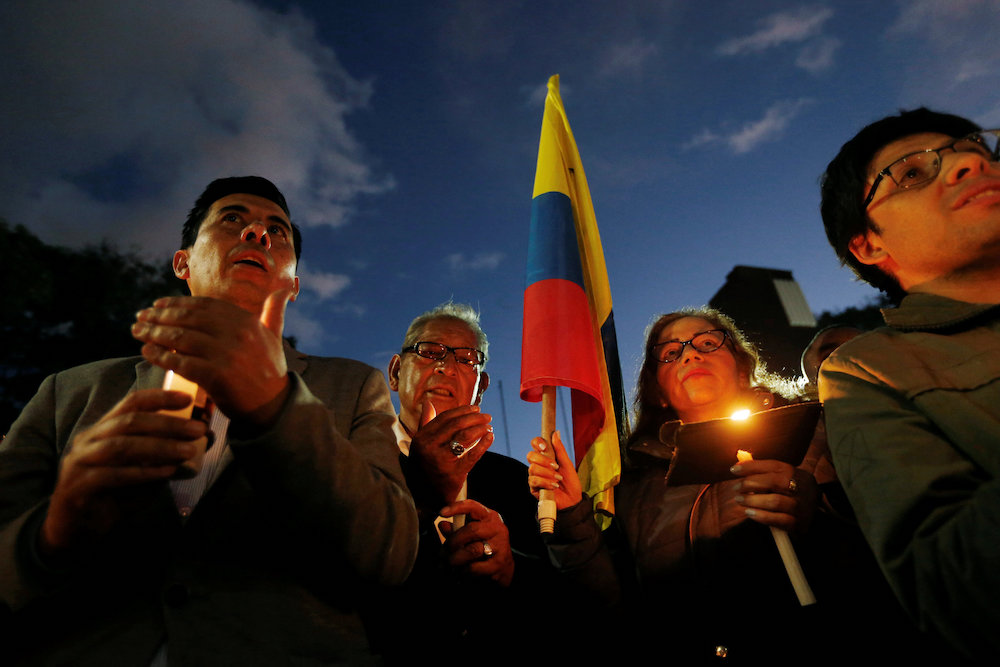When Pope Francis led the recitation of the Angelus prayer Jan. 20, he told the crowd in St. Peter's Square that he had "two pains in my heart: Colombia and the Mediterranean."
"I want to assure the Colombian people of my closeness after the serious terrorist attack" Jan. 17 outside the national police academy in Bogota.
Police said the suicide car-bomb attack left at least 20 people dead and more than 60 injured. The National Liberation Army (ELN) later claimed responsibility for the attack, saying it was in retaliation for the government violating a cease-fire agreement by attacking rebel camps.
"I pray for the victims and for their families," Pope Francis said, "and I continue to pray for the journey of peace in Colombia."
Pope Francis also led the thousands of people gathered in St. Peter's Square in praying the Hail Mary for migrants feared drowned in the Mediterranean and for "those responsible for what happened."
Some 170 migrants were believed to have drowned in the sea in two separate shipwrecks in mid-January. "They were seeking a future" and "perhaps were victims of human trafficking," Pope Francis said.
The U.N. Refugee Agency said Jan. 19 it had been unable to verify the exact death toll, but a nongovernmental humanitarian organization reported 53 people died at sea between Spain and Morocco. "One survivor is understood to have been rescued by a passing fishing boat after being stranded for more than 24 hours at sea and is receiving medical treatment in Morocco. Moroccan and Spanish rescue vessels have been searching for the boat and survivors for several days to no avail."
In addition, the agency said, the Italian navy reported "an additional shipwreck on the central Mediterranean." Three survivors were taken to the Italian island of Lampedusa for treatment and they "reported that 117 people, who are currently dead or missing, were on board with them when they departed from Libya."
As many European governments close their ports to migrants attempting the crossing by sea and to the humanitarian organizations that rescue them, Filippo Grandi, U.N. high commissioner for refugees, said, "We cannot turn a blind eye to the high numbers of people dying on Europe's doorstep. No effort should be spared, or prevented, from saving lives in distress at sea."
The U.N. statement said it is "concerned that actions by states are increasingly deterring NGOs from conducting search and rescue operations and is calling for these to be lifted immediately."
However, the statement said, the United Nations also wants a greater focus on discouraging and preventing refugees and migrants "from taking these desperate journeys in the first place. More safe and legal pathways to access asylum in Europe are needed for those fleeing war and persecution so that no one feels they have no other choice than to put their lives in the hands of unscrupulous traffickers and smugglers."

